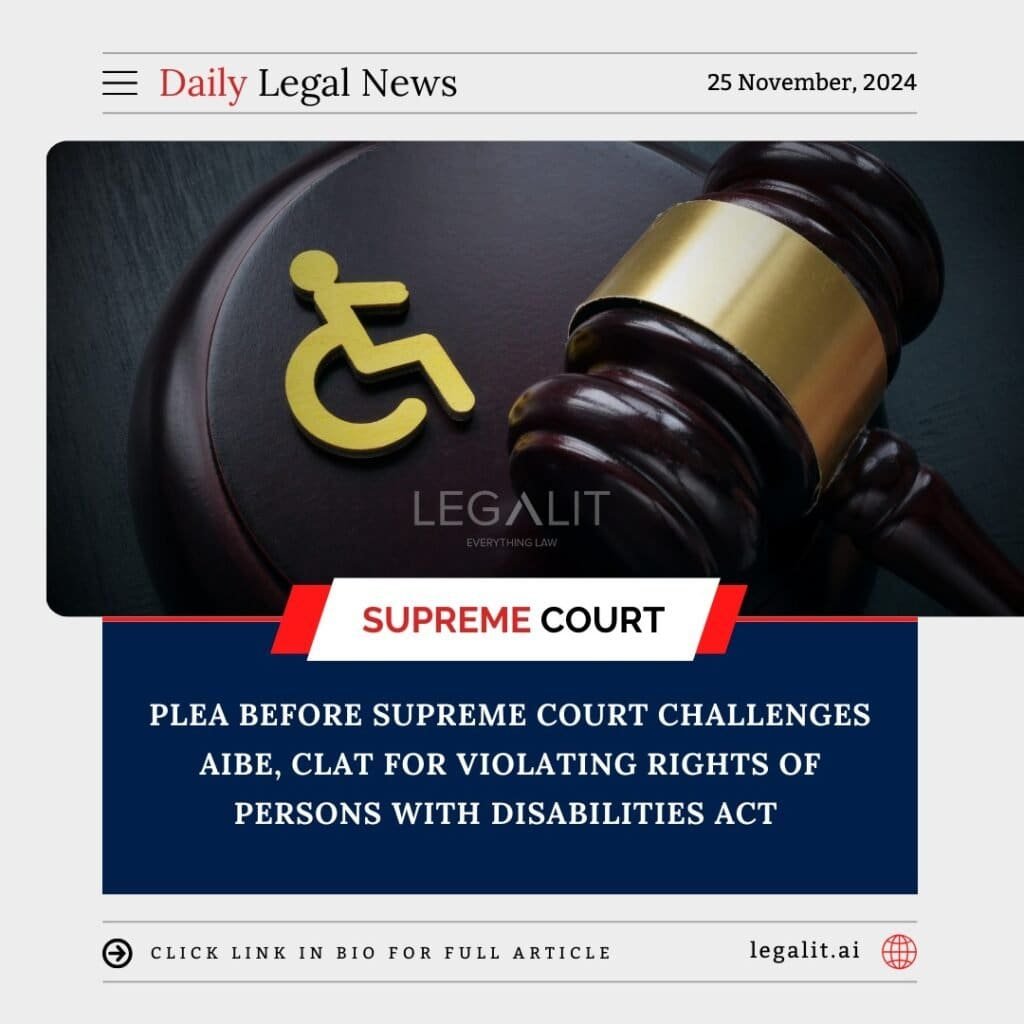
A petition filed in the Supreme Court alleges that the All India Bar Examination (AIBE) and Common Law Admission Test (CLAT) fail to comply with the Rights of Persons with Disabilities (RPWD) Act, 2016. The plea claims the exams lack adequate provisions to accommodate candidates with disabilities, thereby violating their fundamental rights.
Background:
The RPWD Act, 2016 mandates educational institutions and examination authorities to ensure equal opportunities for persons with disabilities, including necessary accommodations such as additional time, scribes, and accessible materials. The petitioner argues that AIBE and CLAT, key legal examinations in India, fall short of these obligations, causing undue hardship to disabled candidates.
Court’s Rationale:
The petition asserts that the lack of reasonable accommodations in these examinations violates Articles 14 and 21 of the Constitution, which guarantee equality and the right to life with dignity. The plea seeks directions from the Supreme Court to enforce compliance with the RPWD Act, ensuring an inclusive approach for all candidates.
Existing Measures:
While the RPWD Act outlines comprehensive guidelines for accessible education and examination procedures, its implementation remains inconsistent. Examination authorities often cite logistical challenges, highlighting the need for greater awareness and infrastructural support to meet legal requirements.
Conclusion:
The Supreme Court’s decision on this plea could set a significant precedent for ensuring inclusivity in competitive examinations. A directive to align AIBE and CLAT practices with the RPWD Act would reinforce the commitment to equal opportunities for persons with disabilities, paving the way for systemic reforms.